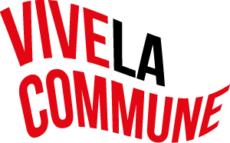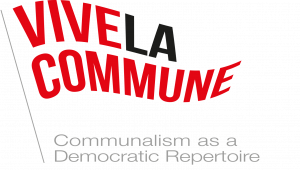Gaard Kets presented a paper with the title “The Commune and the councils: the communalist repertoire in the German Revolution of 1918-1919” at the International Conference on the History of Concepts
Abstract of his paper
This paper aims to contribute to the recent efforts to reconstruct what has been called ‘the communalist repertoire’: the democratic repertoire of the Paris Commune of 1871, and its various articulations over the past 150 years (see www.vivelacommune.org). In particular, this paper focusses on the articulation and contestation of this repertoire in the German Revolution of 1918. This revolution marked the beginning of what would become known as the council movement – a movement that not only contested parliamentary politics and trade unionism, but also the Bolshevik conception of the revolutionary vanguard party. The council communist articulation of the communalist repertoire developed in conceptual conflict with these other political repertoires (Kets and Muldoon 2019; Kets and Muldoon 2018; Muldoon 2019; Kets 2019). I will trace the communalist repertoire in the debates in the German workers’ and soldiers’ councils of 1918-1919. A central question in revolutionary Germany was the relation between a National Assembly and a council system, and these debates provide a well-documented source of conflict between various democratic repertoires (Arnold 1985; Hoffrogge 2015, 2019; Kolb 1962; Oertzen 1963). How were various interpretations of the Commune contested in those debates and applied to the future of Germany? How did delegates relate to the experiences of the Commune, was it an example to be followed or a threat to be avoided (Jones 2017)? How was the repertoire of communalism articulated, contested and translated to the context of modern Germany?

